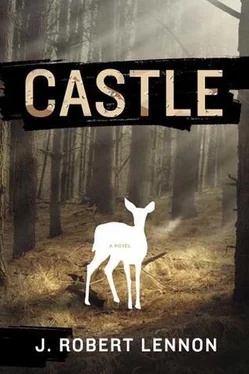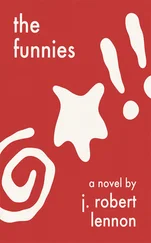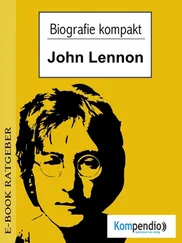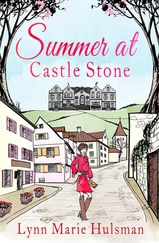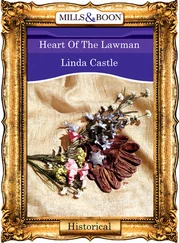In the silence that followed, I watched a pair of headlights rake across the glass block wall. When I looked up at my companions, they were exchanging a meaningful glance. They saw me noticing, and quickly turned away.
“Randall. Heph,” I said. “It’s clear there’s something you’d like to discuss with me. Though I’m flattered you wanted me to join you tonight, I never doubted that you had an ulterior motive. What is it?”
Heph seemed abashed by this little speech, but it appeared to give Randall some resolve. He sat up a little straighter and said, “Well, we know about all that happened to you. And we just want to let you know we’re behind you, that’s all.”
To be perfectly honest, I had imagined this would come up. I was not, however, interested in discussing it. “That’s very kind of you,” I said.
“So it was you then, was it?” Heph said suddenly. “Randy said he was reading up on the internet and all that. Seemed to me there’s gotta be other people called Eric Loesch in the army, right?”
“No,” I admitted. “That was me.”
Randall was gazing at me with a strange intensity now. I turned my beer mug around and around on the tabletop.
“You’re not drinking your beer,” he said.
“I’m not much of a drinker,” I replied.
“Ahh, on the wagon. Sorry about that.”
I said nothing, though his characterization was not entirely accurate. I did not have a drinking problem from which I was recovering. I simply did not enjoy excessive indulgence in alcoholic beverages.
Heph spoke up, to fill the lull in conversation. “Welp, anyway, it’s you then. I’ll tell you, son, I think you got a raw deal. Seems to me none of that was your fault. You were just following orders, right? You were doing what had to be done.”
“I suppose so,” I said.
“People on the outside don’t understand what it’s like,” Heph went on. “They think it’s all black and white! There’s bad and there’s good and nothing in between! But it isn’t like that, now, is it! It’s hard making decisions in a time of war, and when push comes to shove you gotta do your job and you gotta show the enemy who’s boss, don’t’cha think, Randy?”
Randall nodded slowly. He appeared to be slightly ill at ease after Heph’s little speech. For my part, I realized that I would be forced to leave. There was no way to carry on with the conversation, now that this subject had come up, and I began, in spite of myself, to shift uncomfortably in my chair.
Fortunately, or perhaps unfortunately, an excuse for leaving would soon present itself. Only a few seconds of awkward silence had elapsed when I began to become aware of the health-food meal in my stomach, and the fact of its not having yet been digested. It had been quite some time since I ate; the meal ought to have been well on its way through my system. Instead, it was threatening to make a dramatic return.
“Gentlemen, would you excuse me a moment?”
Randall and Heph replied with grim nods as I rose, then walked, then walked faster, to the men’s room. I pushed open the door of a stall just in time to expel my dinner into a filthy, waste-encrusted toilet. A few moments later I was washing my face with scalding hot water from the chipped and stained porcelain sink, and shivering uncontrollably. My stomach, though empty, turned over, and I returned to the stall for another round of painful release.
When I emerged at last into the bar, Heph and Randall looked up at me expectantly. “I’m sorry,” I said. “I seem to have come down with something.”
“You look like you just saw a ghost in there,” Randall remarked.
“It was the ghost of my dinner,” I managed to quip, and their laughter went some way toward smoothing over the discomfort of the moment. I thanked them again for inviting me out, and walked unsteadily to my car.
Twice on the way back to the house I was forced to pull over and endure a series of dry heaves. The shivering intensified, and it was only through the sheer force of will that I was able to keep my hands steady on the steering wheel. I staggered into the house, up the stairs, and into bed, where I began what was to be several days’ discomfort and delirium.
I remember little of those days. Sometimes it was light outside, sometimes it was dark. At times I slept as though dead; at other times I rolled in my reeking, sweat-stained sheets, in an agony of nausea and pain. My head throbbed, my throat burned, and my belly ached from its exertions. At first I imagined that I had contracted some foodborne illness, but my body barely seemed to notice that the food was gone. Clearly, then, it had to be some kind of severe flu. Light exploded behind my closed eyes; I buried my head beneath my pillow, in fear of the sun. I must have managed to take some aspirin, because the almost-new bottle was half-empty by the time I came out of it; twice I woke from cramped sleep laid out on the bathroom floor. I also tried to bathe — I would wake up one night trembling in a tub full of freezing water, which I had no memory of having drawn.
When at last I came out of it, it was late afternoon, and a wind thrashed my bedroom window. I was surprised to find myself climbing out of bed to look out: the eastern sky was dark with roiling clouds, and the gusts carried a light rain that clattered against the pane like thrown gravel. I mustered enough strength to open the window an inch. The wind shouldered in, spattering the sill, and my hands upon it, with rain. Warm rain — a warm wind blowing warm rain. Relief spread through me. I was well again, and warm weather had arrived. Outside, the roof of the forest roiled like a sea, and the sunlight streaming from behind the house cast its long, strange shadow against the trees.
I shut the window and drew deep breaths there in the small, empty room. I could smell it now, my bed, my body: the sickness was gone, but its sourness, its stale spoor, was left behind. Shivering with hunger and weakness, I gathered up my filthy sheets and took them downstairs to wash; then I returned to the bathroom and bathed, scrubbing the past few days away. I dressed, went to the kitchen, and prepared myself a piece of buttered toast with trembling hands.
The toast was perhaps the most delicious food I had ever eaten in my life. The bread, thick and chewy, was flawlessly browned and crisped; the crust had been roasted nearly to burning, and it flaked off onto my tongue, releasing a full, rich, smoky roundness. The butter was sweet and half-melted, and I could feel its oily essence penetrating me, lubricating long-rusted synapses, opening up my mind and my senses after so many days of disuse. The toast was gone in seconds, and I made another piece, and a third, and a fourth, devouring them with robotic efficiency as I leaned against the kitchen counter.
Soon I was sated. But I felt no particular motivation to move. The washing machine churned and knocked in the laundry nook, working away at my bedclothes, and the afternoon sun blasted through the tiny window above it, bathing the kitchen in diffuse, blinding light. I was alone, and free to do as I pleased — and yet a strange emotion had begun to steal over me, a familiar one, that of being trapped, tested, manipulated. Scraped clean by my brief illness, I could hold up this emotion and examine it as though against a plain, uncluttered ground: in isolation, objectively. And I was given to wonder, had there ever been a time in my life when I had not been a pawn of those more powerful than I? My father, my teachers, my commanding officers? Indeed, was it even possible to live otherwise? I say this not to relieve myself of responsibility for my failings, for it was clear that, if I had always lived under the sway of the powerful, I had done so voluntarily, even eagerly. There is no comfort like the comfort of following orders. There is no relief like being relieved of agency.
Читать дальше
